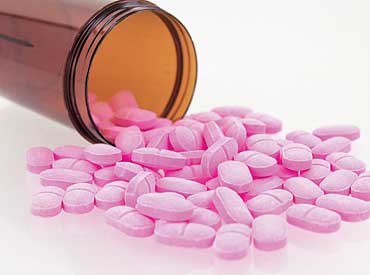- Indian drug firms vie for Teva portfolioSun Pharma gets FDA warning over Halol plantRanbaxy woes continue to dog Sun PharmaDrugs Controller General cracks the whip on online sale of drugsPfizer-Allergan deal could open up opportunities for Indian drugmakers
The issue of licensing is not relevant as 344 fixed drug combinations (FDCs) have been banned on the topic of safety and efficacy, the government told the Delhi High Court on Monday.
The government gave this argument after pharmaceutical firms told the court that they have all the required licences to manufacture and sell these drugs. The court has decided to continue the stay on the drug ban as the hearings will continue on Tuesday.
The government had on March 10 banned these combination drugs as it found no therapeutic rationale in those FDCs. Besides, many of these FDCs were found to be posing health hazard for patients. Following the ban, around 100 drug makers moved the Delhi High Court.
“It is wrong to even go into the question of licensing. Even the required licences have not been obtained by the drug companies,” the government counsel said in the court on Monday. He said the central government has only given no-objection certificates (NOCs) to a few companies. “However, no proper licences have been obtained by the companies which are selling these absurd combinations in the market.”
The pharmaceutical companies, in their defence, told the court that the government’s action was ill-informed as they were not given a chance to present their side properly.
The companies most affected by the ban include Pfizer, Abbott and Macleods Pharma.
While only six brands of Pfizer have been banned, their sales were as much as Rs 424 crore between February 2015 and February 2016. Abbott saw 36 of its brands banned, which had sales of Rs 400 crore in the same period. Similarly, 30 brands by Macleods Pharma, with annual sales of Rs 400 crore, have been banned.
[“source-Business-standard”]


